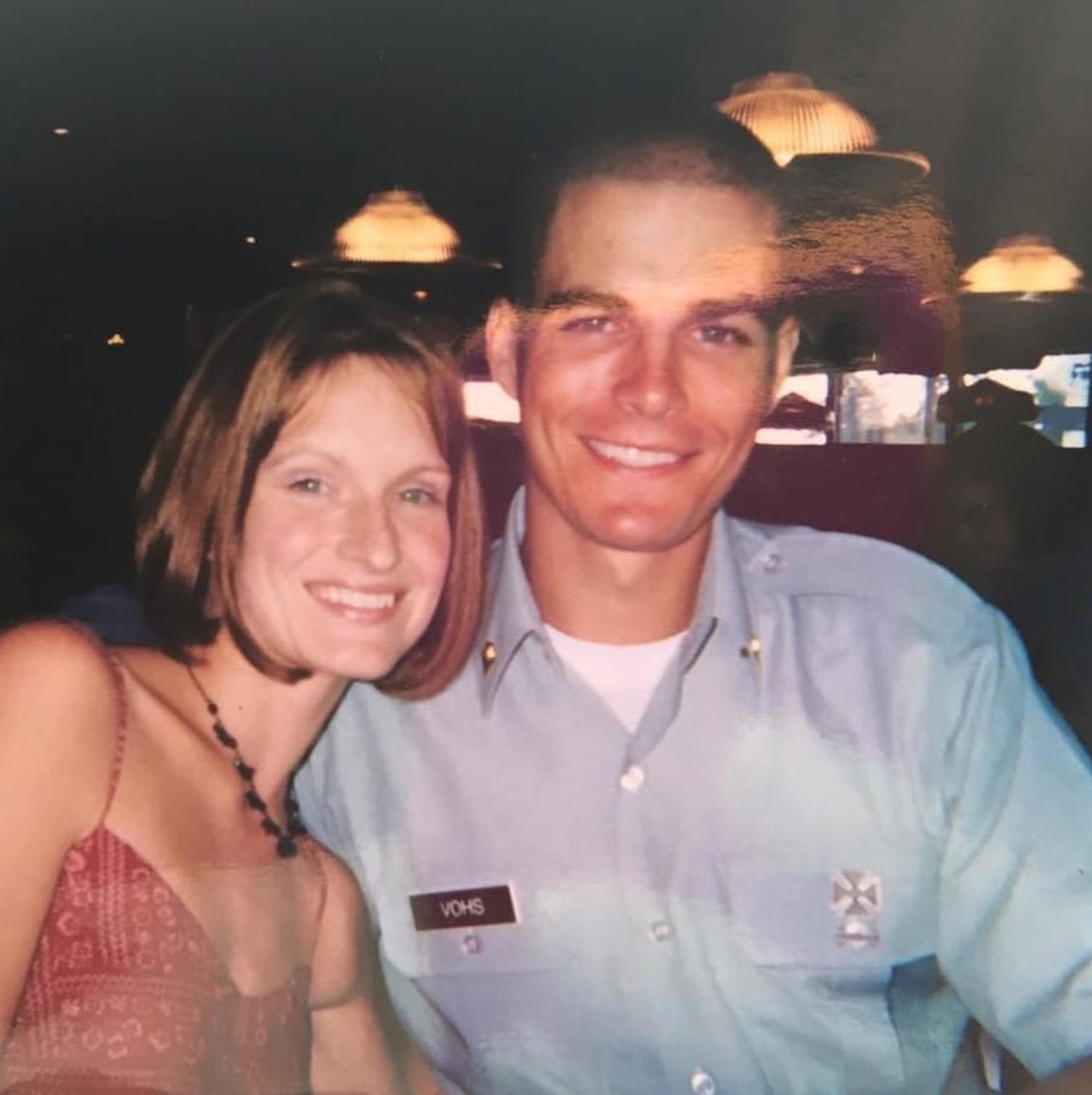Biz and Tech Podcasts > Business > Better Today Than Yesterday

Hey! Join me as I share my lessons about life, leadership, and the peaceful pursuit of Better Today Than Yesterday.
kellyvohs.substack.com
Last Episode Date: 29 September 2024
Total Episodes: 116

A dear friend recommended the book Bird by Bird by Anne Lamott. It took me a year to read it, which was a waste of a year. This week I scrolled through my highlights and I feel compelled to share a few with you. You don’t have to see where you’re going, you don’t have to see your destination or everything you will pass along the way. You just have to see two or three feet ahead of you. This is right up there with the best advice about writing, or life, I have ever heard. A sober friend once said to me, “When I was still drinking, I was a sedated monster. After I got sober, I was just a monster.” He told me about his monster. His sounded just like mine without quite so much mascara. When people shine a little light on their monster, we find out how similar most of our monsters are. The secrecy, the obfuscation, the fact that these monsters can only be hinted at, gives us the sense that they must be very bad indeed. But when people let their monsters out for a little onstage interview, it turns out that we’ve all done or thought the same things, that this is our lot, our condition. We don’t end up with a brand on our forehead. Instead, we compare notes.On a bad day you also don’t need a lot of advice. You just need a little empathy and affirmation. You need to feel once again that other people have confidence in you.We are given a shot at dancing with, or at least clapping along with, the absurdity of life, instead of being squashed by it over and over again. It’s like singing on a boat during a terrible storm at sea. You can’t stop the raging storm, but singing can change the hearts and spirits of the people who are together on that ship.As part of my job, I’ve had hundreds, if not thousands, of opportunities to hear people’s stories. They have been generous in sharing. Here’s what I’ve learned.The narratives vary, but the stories are strikingly similar when you peel away the layers and the armor. The parents who perceive themselves as not good enough, the young professionals who think they are behind in life, the mid-lifers that don’t think they did enough, or the leaders who are about to cave under pressure. Or, the countless people I’ve met that have beaten all the odds—going from nothing to being everything despite their fears, handicaps, and struggles.While we are diverse, everyone is working through something—fear, loss, desire, love, failure, and even success. Someone you know is losing a loved one to illness, another is struggling with an addiction, someone else just lost their relationship, and another isn’t sleeping because someone in their life is in pain. Others are waking up wondering how they got so lucky, with a slight tinge of, “I hope I don’t screw it up.” Still others had the courage to pursue their path, not the one their parents or society wanted for them. They are still fighting a struggle. People have reasons for their actions—or inactions. Sometimes these reasons are rational, sometimes they aren’t, but in the moment, they usually make sense.This week, I’m reminding myself that everyone has a story, and understanding those stories helps us understand each other. I’m thinking about how my relationships and friendships would change if I went even deeper. I know I still throw up walls and don’t always listen. I can be better.We won’t always fully understand everyone, and that’s okay. What matters is that we keep trying and remember to be kind and empathetic. Everyone is worth getting to know. After all, we’re all just stories—hoping someone will listen.I hope you’re good. Take care, Kelly PS: Here are my highlights from Bird by Bird by Anne LamottPPS: Thanks again for the recommendation. You know who you are. I’ll listen more carefully next time. This is a public episode. If you would like to discuss this with other subscribers or get access to bonus episodes, visit kellyvohs.substack.com

I’ve been thinking about and talking about this topic a lot recently, and I found myself revisiting this post, so I’m resurfacing it for you today. I originally published this in July 2022.Note: This post is made for listening, but I’ve included the transcript if you’d rather read.TRANSCRIPT[00:00:00] Hey there. I wanted to follow up on my other note about one of two things leaders are responsible for. The second one is compensation. And there's a whole lot to unpack there, so let's try to do it through a little bit of a story. I'm going to answer a question I get all the time, and that's “why did you join the army?”[00:00:18] And the reason is pretty simple, it was about compensation.Why did I join the army? [00:00:22] Let's go back 20 years, and it's 9/11. I remember very clearly where I was maybe like, most of you. I was at The Breakers, which is a posh hotel in Palm Beach, Florida.That Tuesday morning, I found myself in a meeting room getting ready to give a presentation on a new piece of software. News started to trickle in that something had happened in New York and it wasn't clear how bad it was.More information would come and we'd realize that something horrific had happened.[AUDIO CLIP]It was a very emotional day for everyone, and we'd spend the balance of it huddled around the TV, listening and trying to learn what was going on? I'm trying to understand what was happening in new Yorkers, what would happen to our country, and what our future would be like? What we did know is it was all going to be very different.A DecisionA couple of days later, I woke up and I made a decision. Channeling a very famous scene from the movie Patton and my grandfather, I decided that I wanted to join the Marine Corps. In fact, I wanted to be a pilot. So I marched down to the Marine Corps recruiting office and I started that process.Over the course of the next few months, and a lot of tests and a lot of things, the Marine Corps told me that I wasn't cut out to do that. They wanted me to be an infantry officer and that's not what I wanted. I think if I look back, it was purely a lack of commitment on my side. Maybe too slow, maybe too colorblind, but if I wanted it, I probably could have gotten it.[00:03:48] And if I'm being honest, I quit. Now the good news is a couple of weeks later I'd say something that would change my life forever and really impact everyone around me.At the hotel, there was a long hallway, a very narrow hallway, the kind where you have to step aside so two people can pass each other. On the walls, they had motivational posters from the 1990s, complete with eagles soaring and all the things. Now, this was the time before we all started pushing pixels via email and you had to get your information from printed documents. Down on the right, there is a small room about the size of a closet. This was a mail room. This is where those documents ended up in little slots on the wall.[00:04:33] I remember that day. I remember what the room smelled like, the temperature, and a beige phone sitting on the counter. My vision started to blur and that phone was my focus and I said out loud, "If there's ever another war, I'm gonna enlist."Don't pass go. Don't collect $200. Skip all your egotistical dreams about being a Marine or a Naval aviator or any of those things. Just go get in the fight, Vohs. Now looking back, that was a little naive - but that's what happened.I had a deep, deep, emotional desire to serve a country that had given me so much. I knew for the rest of my life, that it was going to give me more. I needed to do something about it. I needed to serve. At my core, I wanted to defend freedom as hokey as that sounds. That's my, "why."[00:05:26] It's also part of the reason why I ended up picking to go and special forces because their motto is De Oppresso Liber - "to free the oppressed". Now if I reflect back and go a little deeper, there are other emotions at play here, some of them were, self-centered like a desire for admiration and an immature understanding of war highly influenced by Hollywood.So not long after that speech to myself, we would end up invading Iraq. And whether you agree with the politics or not, that at 26 year old, we returned to that moment in that mail room and that beige telephone and he got to work. Two weeks later, on my mom's birthday, I would end up enlisting. Happy birthday, mom.[00:06:09] Here's the deal. My ratio changed. My compensation ratio.The Compensation Ratio & The Three Types of CompensationEconomical[00:06:21] The first is economical. What am I going to get paid? We all need or want to put food on the table, steaks in the freezer, and Tesla's on the charger. Now as leaders, there are a couple of questions we should ask about the economical form of compensation for our team.* Are people being paid well, and how does it compare to the market?* What would it cost to replace this role?* And most importantly, do they feel valued for what you're paying them?ExperientialThe second is experiential. Everyone, whether they realize it or not wants to grow and get better.* Ask yourself, are you providing an opportunity for people to gain experience? * Are you providing them with opportunities for education? * Is there learning curve steep?A near-vertical learning curve is better. A job that challenges you 90% of the time is the right job. Now here's the thing, I use the word opportunity intentionally because you can't lead a horse to water and make' them drink. But you need to give the team opportunities to learn and grow.Emotional[00:07:20] The last one, and the most important if you asked me, is emotional.The one truly non-renewable resource we have is time. We can't get it back. We want to spend our time doing good things with good people. Things that matter with people we love. We want to wake up and look at our calendar on that little Star Trek inspired device and say, it's going to be a good day. We want to have a deep, emotional connection to the people around us and to the mission. This is where leaders come in. They shine a light on the path. This is the mission, this is where we're headed, and this is why we're going to spend our most valuable currency, time, going after it.What’s the right ratio?What's the correct ratio? Only you can answer that and it's probably going to change over the course of your life. Everyone's different.For the most part, there are deep reasons why we do what we do. Stories usually go back to our childhood. Around money, love, admiration, and the other things that have shaped us.[00:08:18] As you think about why people stay on your team or why you do what you do. It's always about compensation.* Do we pay them well?* Are they growing and learning?* Are they connected to what they do and who they do it with?If you don't provide them those opportunities, I promise you, somebody else will.We Want Missionaries, Not Mercenaries[00:08:36] Let's pause for a moment and talk about money. We all have different desires for various reasons. Maybe you need to put food on the table, maybe you want a submarine or a helicopter, and maybe you just need to pay for your great aunt's nursing home that you don't tell anybody about. We may never be able to understand everybody's wants or needs, just let them be them.That said, we have to be very careful when somebody's compensation ratio is near a hundred percent focused on economics. Let's put those living paycheck to paycheck or near poverty aside for a moment. If you have someone on your team that’s coming in every single day and all they care about is how much they are making, that's a problem. And that can be caustic. After all, we want missionaries, not mercenaries.My Ratio Changed, Again[00:09:23] Speaking of missions and mercenaries, I would end up getting out of the army and it was because my compensation ratio changed, again.Specifically the emotional part. The mission changed. Princess Buttercup and I had welcomed three barrel-chested freedom fighters into the family. And now it became less about fighting for freedom and more about fighting for them.The new mission for me was to be the very best father and husband I could possibly be. And I felt that I wasn't going to be able to be that person that I wanted to be. [AUDIO CLIP]There are green Berets out there that are able to do both - be an incredible father/husband and be a Green Beret, but that wasn't me. I tip my hat to them, but I had to hang up my little green hat so that I could focus on those little men.My gut is that as I get older and wiser, my compensation ratio is not done changing. I continue to get clearer and clearer on what is most important to me in life and what my humans around me need from me.Well, I hope you found this helpful. These are just some thoughts from a guy making it up as he goes. And if you did find it helpful, please share it with someone. And whatever you do, take care out there.If you liked this, do me a favor and please hit like (algorithms after all) and forward it to at least one person who might like it too. This is a public episode. If you would like to discuss this with other subscribers or get access to bonus episodes, visit kellyvohs.substack.com

The most powerful force that could be potentially harnessed is dogged incremental constant progress over a very long time frame.-Peter KaufmanI can’t be the only one who lets out a little sigh when the elevator stops on the way down. It’s too early, and this box feels too small. Can I just get to the bottom of the building and out to my daily caffeine spot with as little human interaction as possible, please? Usually, but not always, the newcomer gets a small smile from me, and maybe even a "good morning," just to show I’m perpetually scowling—or at least not at that moment. I'll come back to elevators in a minute.Peter Kaufman was the CEO of Glenair, a Berkshire Hathaway company. He also wrote Charlie Munger’s Almanack. I’ve come across Kaufman’s insights over the years, including notes from a class he gave that I had to promise not to share. They were incredible. Thankfully, Kaufman has also spoken publicly. Recently, my journal reminded me of a speech he gave to an economics class, and it was wonderful. I’ll include the full transcript here—it’s worth your time—but I wanted to summarize a few thoughts that stood out.Five Levels of Cognitive Prowess (from Albert Einstein):5. Smart 4. Intelligent 3. Brilliant 2. Genius 1. Simple "Simple" doesn’t mean unsophisticated. The world may seem complicated, but it’s not. Too often, we want the world to work our way instead of understanding how it really works. Few people can simplify how the world works. Kaufman shares this simple truth:“Every interaction you have with another human being is merely mirrored reciprocation.”In an elevator, if you smile and greet someone warmly, there’s a 98% chance they’ll respond in kind. Occasionally, you’ll get a negative reaction. You might feel embarrassed or even threatened. To avoid that risk, we don’t go all-in. We waste opportunities because we don’t want to look foolish. Kaufman quotes Lou Brock: “Show me a man who is afraid of appearing foolish, and I’ll show you a man who can be beaten every time.” Now, here’s the real secret Kaufman shares:Everyone on the planet wants the same thing and…we spend our lives looking for someone who is:* Trustworthy* Principled* Courageous* Competent* Loyal* Kind* Understanding* Forgiving* UnselfishHe adds, “Most people spend all day long trying to get other people to like them. They do it wrong. You do this list, you won’t be able to keep the people away. Everybody’s going to want to attach to you.”Then comes the real wisdom:All you have to do, if you want everything in life from everybody else, is first pay attention, listen to them, show them respect, give them meaning, satisfaction, and fulfillment. Convey to them that they matter to you. And show you love them. But you have to go first. And what are you going to get back? Mirrored reciprocation. Like the elevator, we have to go first. If we do these things, there’s a 98% chance they’ll be reciprocated. Sometimes, people won’t respond, and someone may take advantage of you, but that’s a risk worth taking. Bono from U2 said something similar: “I know 10% of people are going to screw me. That’s OK. If I’m not willing to be vulnerable to that 10%, I’ll miss out on the other 90%.”Try it—at home, at work, or on your next elevator ride. Try it with your partner, child, colleague, boss, or the kid scooping out that cookie indulgence you love. Show up, put your phone away, and pay attention. Show them respect and make them feel like they matter. Chances are, they’ll return the favor.This is how the world works: people mirror what you give them. People want to be seen, loved, and live fulfilling lives. They want to be around people they trust. When you find someone who has your back and wants to help you win, you’ll do the same for them. It’s simple, but we need the courage to go first.We get back what we give. Hope you're good.Take care, bye. -KellyThanks for reading Better Today Than Yesterday (BTTY)! Subscribe for free. Here is the full transcript: http://latticeworkinvesting.com/2018/04/06/peter-kaufman-on-the-multidisciplinary-approach-to-thinking/ This is a public episode. If you would like to discuss this with other subscribers or get access to bonus episodes, visit kellyvohs.substack.com

"…tranquility…comes when you stop caring what they say, think, or do. Only what you do." - Marcus AureliusThere is some change happening in my life. A new job, a kid left for college, and a few other things that add complexity and a touch of anxiety. Most of this change is good, some of it not. All of it is part of life. Wrestling with a few thoughts and some internal disturbance, I went back to re-read Meditations by Marcus Aurelius. Often, it's not the books you read that make a difference in your life. It's the ones you re-read. This passage stood out."If you seek tranquility, do less. More accurately, do what is essential. Which brings the double satisfaction: do less, better."Do Less, BetterHe is, if nothing, concise. Here's what I take away."Do Less" - means simplifying your life and removing the unessential. Complexity adds stress, simplicity removes it."Better" - by doing less, you have the space to focus on the essentials and get better. He goes on,"Because most of what we say and do is not essential. If you can eliminate it, you'll have more time and more tranquility. Ask yourself at every moment, "Is this necessary?"So. Do less, better.I imagine the old emperor, the last of the "five good emperors," evaluating everything through this lens. Every conversation, every piece of food on his plate, and even every thought. Is this necessary? Is it good? For the unfamiliar, he's writing these notes to himself in his journal. He closes this passage with more advice to himself,"But we need to eliminate unnecessary assumptions as well. To eliminate the unnecessary actions."Much of what we think is both unessential and often untrue. We spend time on unnecessary thoughts, assumptions, and perceptions. We add stress, work, and worry because of the stories we create. I was creating stories. What does this person think, what does that mean, and what will happen if this doesn't happen?Whether those thoughts were true or not doesn't matter - they were a waste of time and energy. The more we try to do, the less we do well. Mastery comes through focus. For me, the most essential task is to master my thoughts. Keep the essential and toss the unessential (and untrue) because, ultimately, my thoughts are the one thing I control. Those thoughts lead to my actions and ultimately who I become. I hope you're good. Take care, bye. -KellyThanks for reading Better Today Than Yesterday (BTTY)! Subscribe for free. This is a public episode. If you would like to discuss this with other subscribers or get access to bonus episodes, visit kellyvohs.substack.com

I believe the most effective type of team is a “Human Team.”These teams accept their members for their individual strengths and struggles. They want the entire human to show up, not just the tip of the iceberg. These teams are about helping each other, and the collective "us," find our potential. If you are on one of these teams, you feel it. It’s different, and you show up and do the best work of your life because you don’t want to let your teammates down.Recently, I read a passage in the book 12 Second Culture. Mike Metcalf and Shaun Peet are NASCAR pit crew coaches. In their book, they do a much better job of describing a human team than I can. Here it is:"As a leader, you can cultivate either an integrated or a compartmentalized culture. An integrated culture incorporates every aspect of those you are leading—their unique personalities, their personal lives, and their needs. It integrates their spirit and soul, their heart and mind, their loved ones, and their deep passions. It is essentially seeing someone for the fullness of who they are. This fullness always extends far beyond the workplace.A compartmentalized culture, on the other hand, treats those you are leading as robots—bodies for labor and ends to a means in the binary tunnel of achieving or underachieving. Compartmentalization creates a certain unawareness about people's situations and deeper needs. It satisfies the fundamental needs of shelter, food, and clothing through compensation but falls short of addressing the higher needs of authenticity, belonging, development, and fulfillment. It forces employees to create boundaries between themselves, leadership, and daily objectives: to suppress who they are and to view the workplace as nothing more than a place to subsidize a life they wish they could spend more time in.Could it be possible that empathy—elevating the humanity of every person and, therefore, their personal sufferings—taps into who we each innately are, cultivates togetherness, multiplies a deep sense of meaning on your team, integrates the personal with the professional, and ultimately inspires a more positive and efficient culture?" (Mike Metcalf & Shaun Peet, 12 Second Culture)I’ve been lucky over my life to be a member of a few teams that I would call Human. None of them perfect, and that makes sense. But all of them have cared enough about me to help me make progress on finding my potential.Hope you’re good. Take care, bye. -KellyHit like and share it with a friend. This is a public episode. If you would like to discuss this with other subscribers or get access to bonus episodes, visit kellyvohs.substack.com

Two Quotes“One of the things we try to do at Amazon is minimize the amount of energy that’s wasted on maintaining power and control and ego, as opposed to what really matters, which is helping our customers.” - Jeff Bezos"To be everywhere is to be nowhere." – SenecaA Lesson LearnedThis past week, I learned about Amazon’s single-threaded leader model. I'll explain that in a minute, but first, an admission. I once thought I could do it all, whether for ego reasons or to prove my self-worth. Whenever something needed to be done, I’d volunteer without considering the impact it would have at home or work. I kept adding more and more, which took a toll on my health, relationships, and, ultimately, my performance. Over the years, I learned:* Multitasking is impossible. It’s just high-frequency switching, and it’s expensive. * Focus over a long period is how you achieve excellence.* Saying no is a superpower.These mistakes are costly to us as individuals — they are deadly when they occur at scale inside an organization. Single Threaded LeaderAmazon’s Single Threaded Leader model assigns one person fully dedicated to owning or driving a specific project, product, or initiative. This leader is not responsible for multiple tasks or areas but wakes daily, focused entirely on one thing. Their sole responsibility is to ensure this initiative receives the necessary attention and resources.The success of the Single Threaded Leader model hinges on several critical factors:* Focus, focus, focus: They have only one job. This eliminates switching costs that tax other leaders and allows them to dive deep into details. Positioned to understand reality, they can make faster and more informed decisions.* One owner: They are ultimately responsible for strategy, execution, and results. The owner is accountable for success or failure.* Autonomy Reduces Friction: Dependencies often create a ‘speed tax’ or a ‘quality tax’ because dependencies require communication and negotiation. Reducing dependencies is crucial. * Be quick and iterate: This structure allows the leader to rapidly iterate without the distractions of managing multiple projects or dependencies. They still need to manage stakeholders, but their mandate is clear: keep working on the problem until you get it right.It might be easy to dismiss this with a comment like, “Amazon has the resources to do this.” I agree—they do. However, be careful not to rationalize away your own mistakes by blaming your operating environment. I know I’ve done it, and I still do. Here are a few other things that feel important to underscore. * If it’s important, commit. Side projects rarely get the attention and resources required to succeed. Put your best people on your biggest opportunities and be prepared for it to take longer and be more expensive than you thought. * Don’t bury important initiatives deep in the organization. Don’t worry about conventional organizational charts or little boxes. Focus on what your organization needs to be the most effective. Ultimately, that’s your job.* Fight Bureaucracy: Innovating requires moving quickly and iterating. Bureaucracy creeps in when you lack talent density, have low trust, or have high fear—usually all three.Given the volume of information and the speed at which we operate, focus is more complicated than ever — personally and professionally. Here are a few questions I’m asking myself: * What are examples of where my expectations of people are bigger than the resources I’ve given them? * Where have I not put the best people on the most significant opportunities? Instead, I leave them where they are because I’m scared. * Am I still stuck in thinking about organizational charts in a conventional way? The NVIDIA CEO has 35+ direct reports, and the company is the second most valuable in the world. It is an outlier, to be sure, but it is still worth challenging yourself. * Where am I still saying yes to things I don’t want to do? Personally and professionally. I hope you’re good. If you liked this, please hit like to let me know and share it with someone else who might like it, too. Take care, bye. -KellyThanks for reading Better Today Than Yesterday (BTTY)! Subscribe for free to receive new a short post every Sunday. This is a public episode. If you would like to discuss this with other subscribers or get access to bonus episodes, visit kellyvohs.substack.com

Are you on a team or just a group working in parallel?The word "team" dates back to the 8th century and originally referred to a group of animals harnessed together to pull a cart or plow. By the 15th century, it had evolved to its modern meaning—a group of people working together, particularly in competitive contexts like sports or battles.Today, "team" means collaboration, mutual support, shared objectives, and winning.A couple of yaks harnessed together to pull a cart are just two yaks pulling a cart. Many so-called teams are like this—maybe your team is too. Just people working in parallel, trying to survive. The best teams work to reach a point that I call "no space between."Hold your hand and spread your fingers out as wide as possible, like holding your hand up and telling someone you will be there in five minutes. Now, bring your fingers together, with your thumb and fingers pointing up like you are holding your hand up to tell someone to stop. This is the difference between teams with space between and those with no space between. Here’s what I’d say to a team as we work to have no space between:1. Trust - We help each other win. Period.Great teams don’t question whether or not someone has their back: no games, no politics, no half-truths, and no trying to outdo each other. The competition is out there. We don’t have room for it in here.Allowing issues to create space between us creates a crack in our team’s wall. Cracks are normal and part of teaming. If we don’t address these cracks, they get bigger, and eventually, we will fail. A great team doesn’t let cracks grow. When you see or feel a crack, you have to fix it. Honest conversations are the mortar that repairs these cracks.Remember, trust is different for each of us. Some trust entirely at the start. For others, trust takes time. You can’t force trust. It is an action-by-action affair. Everything you do builds or degrades trust with the people around you.2. Be aggressive about transparent communicationInformation is motivation and a resource in the mission. Confidentiality is the enemy of trust. Great teams are transparent to a level that often feels uncomfortable to more conventional folks. They are clear on what they will and won’t share but err on the side of sharing.Often, we get caught in the trap that, just because it’s in our head, we think everyone knows. Everyone doesn’t know. You must keep repeating yourself. Once you start hearing others say it, it’s getting through. When they start making fun of you, it has taken hold.When General Mattis took over Central Command (CENTCOM), he made everyone put post-it notes on their phones: “What do I know? Who needs to know? And what have I told them?”3. Seek and tell the truthWe have honest conversations about the work, interactions, and ourselves. We are curious because we want to understand reality. We ask a lot of questions and relentlessly seek the truth. Our biases, history, and ego can color our perspective. We know that. When we find opportunities or issues that impact the mission, we don’t wait—we address them head-on. People’s lives may not be on the line, but their livelihoods are.Honest and meaningful conversations strengthen our wall. Two ways to start these conversations are, “The story I’m telling myself is _____” or “The way I see things from my perspective is _____. Please help me understand what I’m missing.” Then, listen, don’t talk.4. Dissent is a responsibilityWe challenge and disagree. Even if we agree, we argue the other side to expose the flaws. It’s always respectful and is about finding the correct answer, not our answer.Once we decide, and there is no silent voting, we stand shoulder to shoulder with the decision. There is no "we decided, but I was against it." Instead, it's, "We debated deeply, and this is our decision, which we all support 100%."5. Honor the MissingGreat teams don’t talk about each other behind their backs. Gossip is a four-letter word on these teams. Sometimes, you need to talk about someone when they aren’t there—that’s okay. But when you do, you must tell them what you said. Don’t say anything you wouldn’t say to someone’s face. No exceptions.When making decisions, look around and see whose perspective isn’t heard. Maybe it’s because they aren’t in the room or don’t feel they can openly share.6. We care deeplyThe best teams have a mission that each person connects with emotionally and is clear on their role in the mission. We work to establish deep connections with each other and become masters of our craft.Time is our one nonrenewable resource. We want to spend it doing things that matter to us with people who matter to us, and we won’t let them down.7. Values SynchronicityOur work is solving problems—that’s why we exist. We want our teammates to have diverse backgrounds and beliefs to solve various issues. We also want people who are culturally aligned. For example, to be on this team, you must be kind, helpful, thoughtful, and respectful. Your default must be humility, doing the right thing, honesty, transparency, and taking personal responsibility, to name a few.8. Minimize the EgoWe work hard to check our individual and collective egos at the door. We know egos cause us to take things personally, be defensive, or look down on others. We have a hierarchy and titles for decision-making, not wielding power. We work hard to ensure every member feels safe to bring their ideas, arguments, and self to the team. Minimizing ego also puts the team and mission ahead of personal gain. If someone is overly worried about how decisions impact them personally, they will struggle to do what’s right for the mission and team.9. Be respectfulWe use words like "please" and "thank you." We respect people’s time, show up, and focus. We respect opinions, even when they differ from our own. We practice deep listening and loving speech. We understand that not being 100% honest with someone is incredibly disrespectful and unkind.10. Follow through on your promisesGreat teams hold each other accountable, regardless of rank or title. We are clear on the objectives and work to ensure everyone has the resources to deliver on what we are asking. Once we do this, we each need to do our jobs. We tell people when we’re asking them to stretch and where failure is not acceptable. People won’t be perfect, especially if we ask them to do the biggest job of their lives. Often, people need someone to believe in them before they believe in themselves. A team leader's job is to help people find their potential. Sometimes, that requires patience and support.If we’ve been clear with each other and someone isn’t delivering, we address it. We are humans, so it’s complicated. Maybe they need help to get through something hard. Or maybe they aren’t right for the team and must leave. Be honest, that’s respectful. When leading and managing humans, ask yourself, “How would I want someone to treat me?” Usually, that’s the correct answer.If we aren’t delivering as a team, we need to have the courage to change—either what we’re doing, how we’re doing it, or who is doing it. We won’t let our collective ego or sunk costs get in the way of the correct answer.11. Spend energy wiselyWe only have so much energy - spend it solving the problems that help us accomplish the mission. We must spend as little of it as possible on fear or status.Clear, consistent, and authentic communication builds trust and reduces fear. This trust helps us create a team where we don’t worry about mistakes, failure, or saying or doing the wrong thing. You aren’t fearless at this point, but you do fear less. When we fear less, we can be more creative and courageous. This is one reason why trust is essential. When we don’t trust each other, we aren’t a team. We are just working in parallel, trying to survive by protecting our status and resources.Leaders, by virtue of their position, have a significant impact here. If your ‘boss’ is transparent about where you stand and where you can go, it reduces your fear (assuming you trust them). When leaders are transparent with their team, they leave little room for them to tell themselves stories. They might still worry but worry about the same things the leader is worrying about, not something they are imagining. Leaders can’t solve everyone’s problems. We each need to take responsibility for ourselves and manage the voices in our heads. The negative ones are fear, uncertainty, criticism, and doubt. Remember the acronym FUC’D. If you don’t get those voices under control, you are FUC’D. Insecurity is often the biggest killer of careers. Manage your energy and know when you need to take time to get your head straight. The team is counting on you.12. Lead by exampleYou have to model the behavior you want. What you say doesn’t matter; what you do matters.If you aren’t happy with your team's culture or performance, start by looking in the mirror. You can’t control other people, only yourself. Start there and show them what it means to be transparent, humble, decisive, courageous, truth-seeking, and resilient. Show them what care looks like and what it means to help others win. Show them excellence. Leadership isn’t a title. It’s action. Everyone is responsible for building a team with no space between.13. Better Today Than Yesterday (BTTY)Parties and perks don’t make teams—humans do—interaction by interaction, decision by decision. There are so few real teams because it’s hard and takes time. You can’t fix it all in a day. It has been famously said that “we overestimate what we can do in a year and underestimate what we can do in ten years.”Incremental improvement that compounds is difficult to beat. Each day, show up and work to make the team, business, and yourself just a little better. A 1% improvement every day builds on itself. Big goals help you know where you are going, but the little things you do each day make that a reality.When you go to bed at night, ask yourself, “Did my actions today make the team better or worse?” Sometimes, those actions might be counterintuitive. It might mean you need to take a day off. Or it could even mean firing a customer who is not good for your team. What is the next right thing? Do enough of those, and can you wake up in the morning and say, “We are better today than we were yesterday.”This is about iteration and requires you to not shy away from hard conversations or decisions, particularly about yourself.Ask Yourself:* Do you have a team or people working in parallel, trying to survive?* From this list, decide what is working and not working on your team.* From that, what do you think you should focus on? Just one. * Where can you change how you behave to move the humans on your team closer together? How is your behavior causing cracks?When there is no space between, it will be easy to know—you will feel it and see it in your results.Hope you’re good. Take care, bye. -KellyHit like and share it with a friend. This is a public episode. If you would like to discuss this with other subscribers or get access to bonus episodes, visit kellyvohs.substack.com

Clarity is arguably a leader's first job. Why are we here? What are we doing? How do we work?MISSION = WHYThis is why we exist—the mission. It’s the guiding principle that serves as the foundation for all work. When you talk about it, you should feel your energy rise. When it gets hard, this is what gets you to the other side of the hard. The mission should be clear and have deep meaning to everyone.STRATEGY = WHATThis is the plan of action to achieve the mission. This is where analytical thinking, understanding reality, and committing resources intersect.Strategy is the high-level direction, and tactics are the specific actions. One way to think about it is like a road trip. "We’re headed east" is the strategy. The turn-by-turn directions, the vehicle choice, who drives when, and keeping those fed who get hangry are the tactics.Don’t fall into the trap of believing that you must have all the answers just because you are in charge. Sometimes, you must drive, navigate, pay for gas, nap, or change a tire. Your role should constantly change depending on what the team needs from you. And don’t forget, if you could do this yourself, you wouldn’t have a team.CULTURE = HOWThe behavior of each person as they execute the work forms your culture. This happens interaction by interaction and decision by decision. Will I say "please" and "thank you"? Will I punish someone for taking a calculated risk that failed? You need to be intentional about the behavior you expect. The values on the wall often get mocked because they aren’t lived. If the values are lived, people won’t laugh at them—they’ll be proud of them. But if you say you want transparency but hoard information, they should make fun of you. If you say respect is a value but show up late to meetings, talk over people, and never listen, then you don’t believe in respect. Remember, the more power a person has, the more impact their behavior has on shaping culture.In 2009, Reed Hastings, the founder of Netflix, published a 125-page slide deck on their values. That’s right, 125 pages. It begins with:Be Clear On How - That Drives EverythingReading Scaling People by Claire Johnson, I stumbled upon Stripe’s Operating Principles. They are great. Here’s one I like:“Solve problems. Be a persistent force for progress. Our leaders must work with their teams and across Stripe to quickly and effectively solve problems—especially when they’re hard.”Amazon’s leadership principles are great, too. The original version of these was sent out by Bezos after his head of HR spent nine months interviewing people to figure out what really mattered in their culture. It has grown from 9 to 14 principles since then. Here’s a favorite:“Earn Trust: Leaders listen attentively, speak candidly, and treat others respectfully. They are vocally self-critical, even when doing so is awkward or embarrassing. Leaders do not believe their or their team’s body odor smells of perfume. They benchmark themselves and their teams against the best.”You can have a clear mission, strategy, and tactics, but it doesn’t matter if you fail to execute. Execution is all about the "how." Be clear on the behavior you want to hire, reward, and promote. Ultimately, this will be your culture. Hastings says it best, “Values are what we value.”Here’s a link to all three. They are worth a few minutes of your time.Stripe Operating PrinciplesAmazon Leadership PrinciplesNetflix Culture (2009 Version)Hit like and share it with a friend. Hope you’re good. Take care, bye. -KellyFrom the Archive This is a public episode. If you would like to discuss this with other subscribers or get access to bonus episodes, visit kellyvohs.substack.com

Some people give space, others take it.Givers let you talk.Takers do the talking.Givers give credit and take the blame.Takers take credit and give blame.Givers seek answers.Takers are the ones with all the answers.Givers focus on improving.Takers are busy proving.We don’t ever exclusively play the role of space taker or space giver. Our role should change depending on the situation. Sometimes, you need to be a space taker. Sometimes, a space giver. The question to ask yourself constantly is, “Right now, am I helping or hurting?” If you don’t know the answer, ask the people around you. They know. When we listen, we learn. We’re getting better at our craft and connecting the dots. We’re leveraging everyone around us to come up with the right answers, not just our answers. We can foster a culture of listening and learning or one focused on proving.The team will take the attitude and behaviors of its leaders. Behave accordingly.If you liked this, hit like and share it with a friend. Hope you’re good. Take care, bye. -KellyFrom the Archive This is a public episode. If you would like to discuss this with other subscribers or get access to bonus episodes, visit kellyvohs.substack.com

I’m working on something that I call a MAP: Me, a Page. The idea is to give someone my instruction manual. I have quirks, beliefs, pet peeves, and ways of working. Why keep them a secret and make them learn it the hard way? They likely aren’t permanent or perfect, but they are me at this moment.In the process of doing that, I thought I’d write down my values. That seemed simple enough, but it’s not. Sitting next to Princess Buttercup, I took out a notebook and wrote down a few words. One of them was wisdom. As she read, and we both enjoyed some salt air, I thought about wisdom. What does it mean? How do you define it? So I asked a friend. Here is what ChatGPT said:“Wisdom is the ability to make sound judgments and decisions based on knowledge, experience, and insight. It involves understanding the deeper meaning of life, seeing things clearly, and acting with prudence and integrity.”With that in mind, I started writing what I thought was important. What insights do I currently hold true? As far as the “deeper meaning of life,” I don’t have that answer. If you do, please let me know. Here’s the list I came up with. Like everything I share weekly, it could be right or wrong. I’m just making it up as I go. You probably are, too. I feel obligated to stress that this list is not complete. Each week, I try to share the lessons I learn and how I’m trying to get better. So, I’m sharing it live. Maybe one or two of these resonate with you.* Understand and embrace reality. Resisting or resenting will not help. Focus on what you can control. Life is problem-solving. Get good at solving problems and/or letting them go.* Love people and events. Good or bad, both are temporary and almost always helpful for learning. Be tolerant, humble, and curious. Love helps. Hate hurts.* Truth requires curiosity. Seek and speak only the truth, especially about yourself. Understand who you really are and act accordingly. Self-awareness and self-control. Don’t conform to external expectations or superficial desires. Your maximum impact lies at the intersection of what the world needs and what you love.* Pride dulls the senses. Don’t let your ego stop you from learning and loving. A willingness to look foolish is a superpower.* Everyone struggles with something. Ask enough questions, and you’ll find out. Everyone is fighting a battle. * Respond, don’t react. Emotions cloud judgment and reality — particularly anger, fear, pride, and sadness. Don’t suppress them; work to understand and master them. If your inside game is strong, your outside game will be too. We have absolute control over our thoughts. Nothing else.* Do good, not bad, and know the difference. Good comes from good action, and evil comes from vice and moral failure.* It’s not about you. It’s about us. We are all connected, and we each have a duty to contribute to our shared harmony.* Don’t time travel. Past regrets and future anxieties are distractions and rarely real.* Simple is better. Focus on what really matters. Think and live simply.* Just because you can win the game doesn’t mean you should play. This applies to relationships, jobs, missions, and ideas. Quit when you realize you’re playing the wrong game, but make sure you’re quitting for the right reasons. It’s easy to lie to yourself when it gets hard. Most good things are hard at some point.* Appreciation takes effort. Bad things are a threat, so they’re easier to see. It takes effort to see the good and the progress in yourself, others, and society.* Happiness is a choice. It’s not always easy, but still a choice. The distance between your perception and your expectation is your amount of unhappiness. Change your perception or your expectation to close that distance. Also, it’s okay to be sad sometimes. Bad things happen.* Usually, it’s enough, and you’re enough. Just enjoy it. It doesn’t have to be any different than this moment. Take care, bye. -KellyIf you liked this, hit like and share it with a friend. From The Archive This is a public episode. If you would like to discuss this with other subscribers or get access to bonus episodes, visit kellyvohs.substack.com
Discover new partners and
collaboration opportunities —right in your inbox.
Get notified about new partnerships